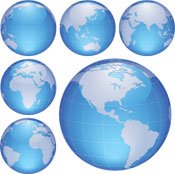Time Magazine reported this month that the United States throws away 20 million to 50 million metric tons of "e-waste" each year. When you throw out a computer, it will likely end up in a landfill or incinerator. E-waste from our trashcans can also end up in developing countries where scrap-yard workers extract valuable substances such as copper, iron, silicon and gold. When you throw electronics away, their hazardous components leak into the earth, poisoning the surrounding ecosystems.
Instead of tossing your old phone, computer or television, recycle or reuse it. Most electronics contain lead, mercury and/or cadmium, so it's important that you dispose of them properly. If your electronics are still functional, donate them so they can be reused. Here's a list of places you can take your electronics to be recycled or reused:
Where to Recycle Electronics in Jackson:
• Jackson's E-Service Center (1570 Terry Road, 601-960-2045) accepts batteries, cell phones and computers for free. Just drop off electronics. The center is open from 8 a.m. to 3 p.m. Tuesdays, Thursdays and on the fourth Saturday of every month.
• Best Buy (194 Promenade Blvd., Flowood, 601-919-0176 and 6370 Ridgewood Court Dr., 601-977-9115) accepts most electronics, working or not, regardless of where they were purchased. Best Buy won't take monitors over 32 inches, hard drives, appliances or any electronics with refrigerants. They will take three items per household per day. There is a $10 charge for TVs and monitors, but you get a $10 Best Buy gift card in return. Best Buy will pick up old televisions and appliances to be recycled when they deliver a new television or appliance. The company also has kiosks at every store for recycling ink cartridges, CDs, DVDs, cables and cell phones.
• The Apple Store (1000 Highland Colony Parkway, Suite 4010, Ridgeland, 601-607-4521) accepts iPods and iPhones and will give you 10 percent off your new iPod or iPhone. You can also mail in your old Apple computer and get credit on an Apple gift card.
• Dell Computer owners can call 1-800-463-3339 to schedule a free at-home pickup through FedEx. When you call, tell FedEx you'd like to participate in the Dell PRP Recycling Program. Visit tinyurl.com/342t3tq for a checklist of what to do before they pick up your computer.
Where Does My e-waste Go?
Even if you recycle your e-waste, it could still end up in a developing country's landfill where children or poorly paid workers are exposed to hazardous material. In 1998, The United Nations' Basel Ban required countries to ban exporting all forms of hazardous waste to developing countries. The United States, however, fought the ban, and refused to sign it.
The nonprofit, e-stewards (http://www.e-stewards.org), launched the "e-stewards pledge program," which tracks and documents recycler's toxic materials and certifies that the materials are not exported to developing countries. Unfortunately, the closest e-stewards certified recycler is 5R Processors in Memphis, Tenn.
The certification includes:
• A certified environmental management system that minimizes workers' exposure to hazardous materials.
• Prohibiting all toxic waste from being disposed in solid-waste landfills and incinerators.
• Compliance with international hazardous-waste treaties for exports and imports of electronics, and prohibiting the export of hazardous waste from developed to developing countries.
• Prohibiting the use of prison labor in toxic electronics recycling.
• Requiring extensive protection and monitoring of recycling workers.
How to Reuse Technology
• If your electronics are still functional, consider dropping them off at N.U.T.S. (114 Millsaps Ave., 601-355-7458), the Salvation Army (110 Presto Lame., 601-948-0737) or Goodwill (104 E. State St., Ridgeland, 601-853-8110).
• Jackson State University's (1400 J.R. Lynch St., Just Hall of Science, 601-979-8258) Department of Technology accepts computers, which they test and donate to low-income families.
Make Art out of Technology
Check out "62 Projects to Make with a Dead Computer" ($14. 95, Workman Publishing Company, 2010) by Randy Sarafan for projects to turn technology into art.



Comments
Use the comment form below to begin a discussion about this content.